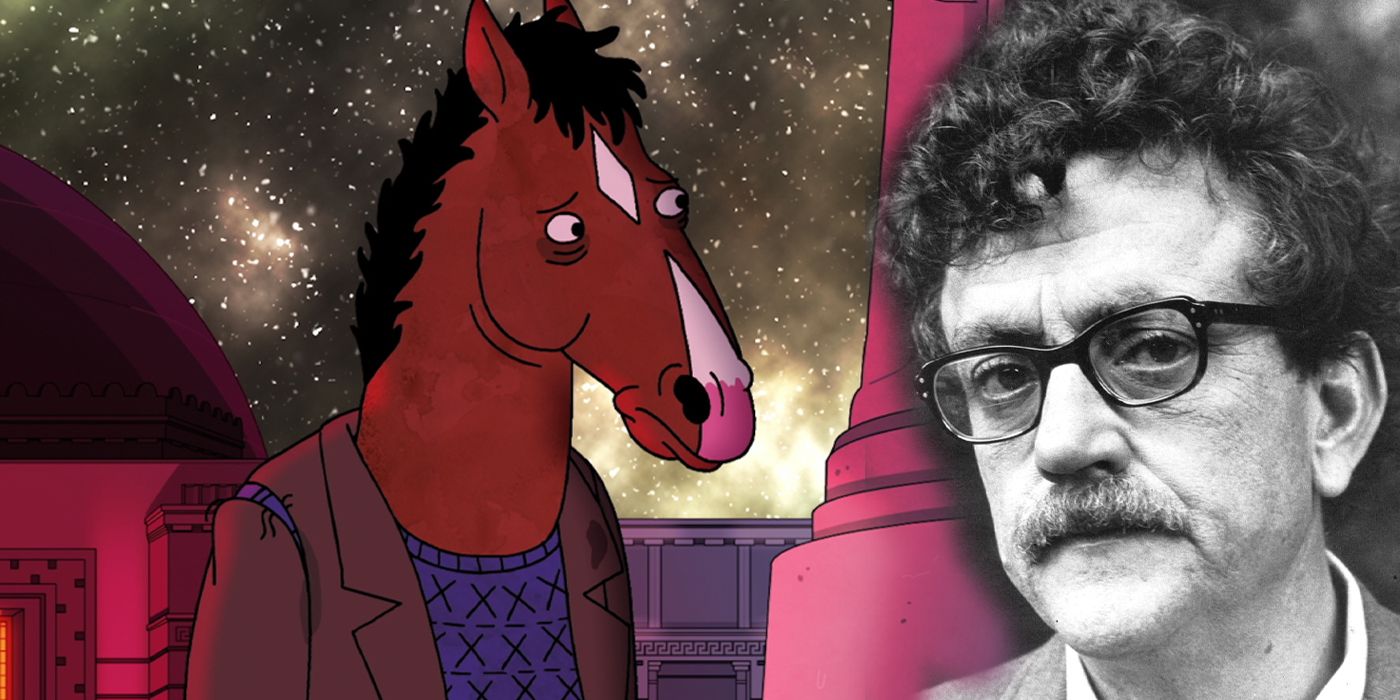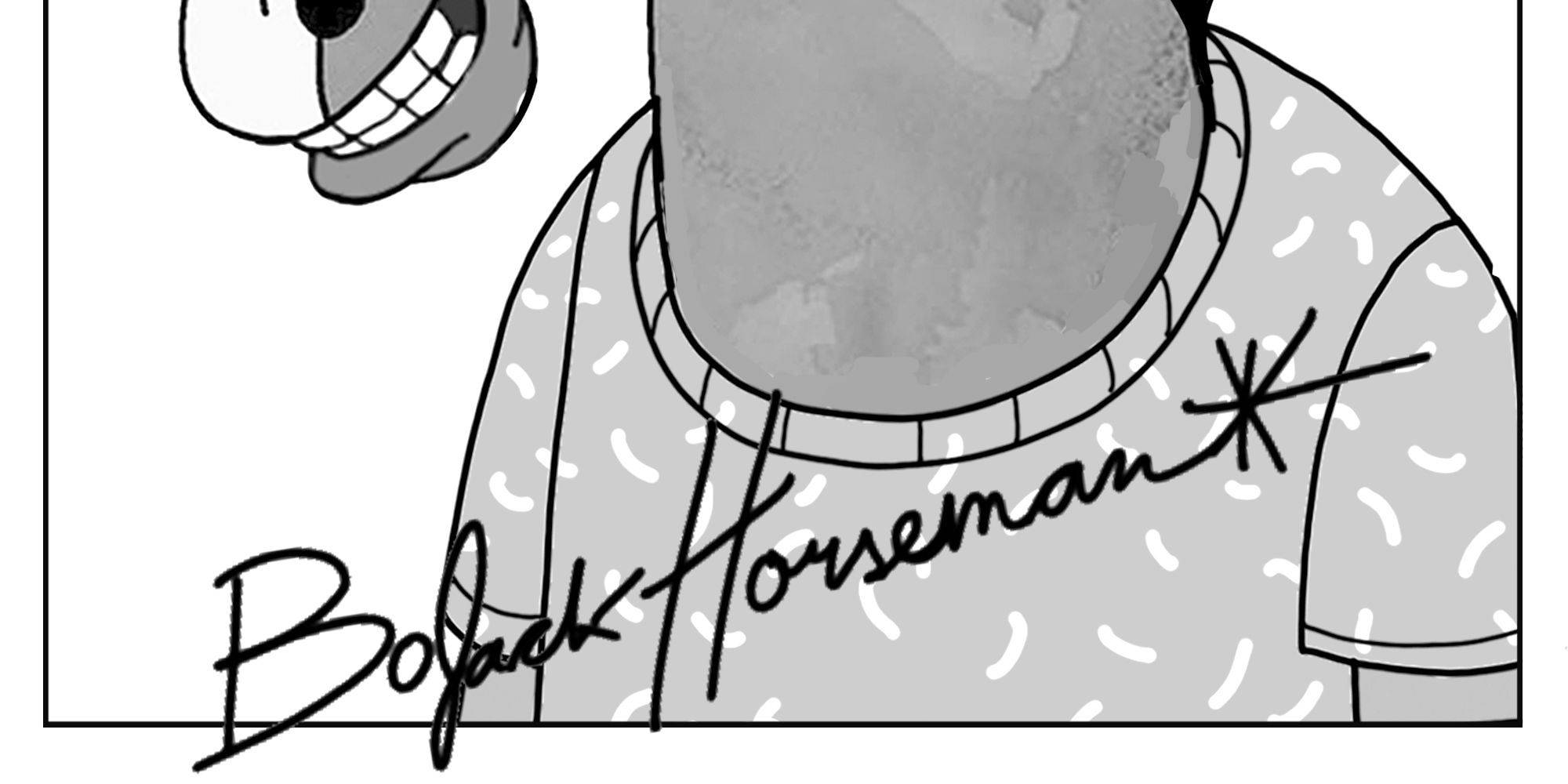Bojack Horseman is well-known for its background sight gags, visual motifs, and the type of cleverly inserted Easter eggs that work particularly well in an animated show. One of the most interesting and perhaps significant of these details is the celebrity autograph of Bojack himself, which includes an asterisk not dissimilar to the one within the iconic signature of famous author and master of satire Kurt Vonnegut. It's fairly easy to miss, but the reference is as much a display of Bojack's personality traits as it is a fun reference to one of the television show's influences.
Literary references occurred many times in Bojack Horseman throughout its run, so the nod to the tortured artist Vonnegut shouldn't come as much of a surprise to long-time viewers. After all, this is a show in which J.D. Salinger, author of Catcher in the Rye and architect of the flawed protagonist and antihero archetype, is a legitimate side character in season two. The actions of the core characters tend to mimic the behavior of familiar figures from English class, like the time Todd recreated the ending scene from Of Mice and Men when he "killed" sex robot Henry Fondle. The writing also explicitly references literary figures like playwright Henrik Ibsen to enunciate deeper themes.
Although no one on the show actually states his name, Kurt Vonnegut is a sure influence on the show's main character. Bojack and Vonnegut both have a history of mental illness that has negatively impacted their careers, though they both still became known as successful artists. Vonnegut suffered from intense depression due to personal troubles and traumatic experiences, though he never seemed to entirely lose his heart to despair. Readers can see the author's methods of coping with his cynical view of humanity by inserting humor and messages of hope, just like Bojack struggles to use his art as a way of dealing with his reckless and destructive behavior.
Bojack Horseman References Kurt Vonnegut
Kurt Vonnegut has a distinctive signature because of his trademark asterisk. In the novel Breakfast of Champions, Vonnegut explains his level of maturity by including an illustration of an "asshole," which is merely the same asterisk he uses in his signatures — perhaps making a deprecating statement about his own autograph. It's one of the most explicitly revealing examples of the author's dry wit and extreme sarcasm. Likewise, Bojack includes an asterisk in his own celebrity autograph. Whether the reference is the creative team behind Bojack Horseman making a sly remark about themselves or the character, the Easter egg is a subtle way of expanding on the nature of the protagonist and, more generally, the themes of the show.
Vonnegut's style relies on the absurd in order to humorously articulate his dark satirical commentary on human nature, a comedic technique that Bojack Horseman fully embraces. Blurring the line between zany humor and cold, grounded reality, both Vonnegut's novels and Netflix's animated series strive to demonstrate all of the faults and beauty found in tortured people. There is perhaps no better example of this type of character than Bojack himself, whose pained existence, especially his tragic family background and struggles with depression, is reflective of Vonnegut's own life.
Vonnegut experienced difficulty writing Breakfast of Champions due to his worsening depression, but the author thankfully finished his classic work. On the other hand, Bojack has a harder time overcoming his toxic impulses and self-pity to follow his artistic streak. Still though, the flawed protagonist at the heart of Bojack Horseman personifies real-life issues the same way Vonnegut's colorful characters and alternate worlds do.


